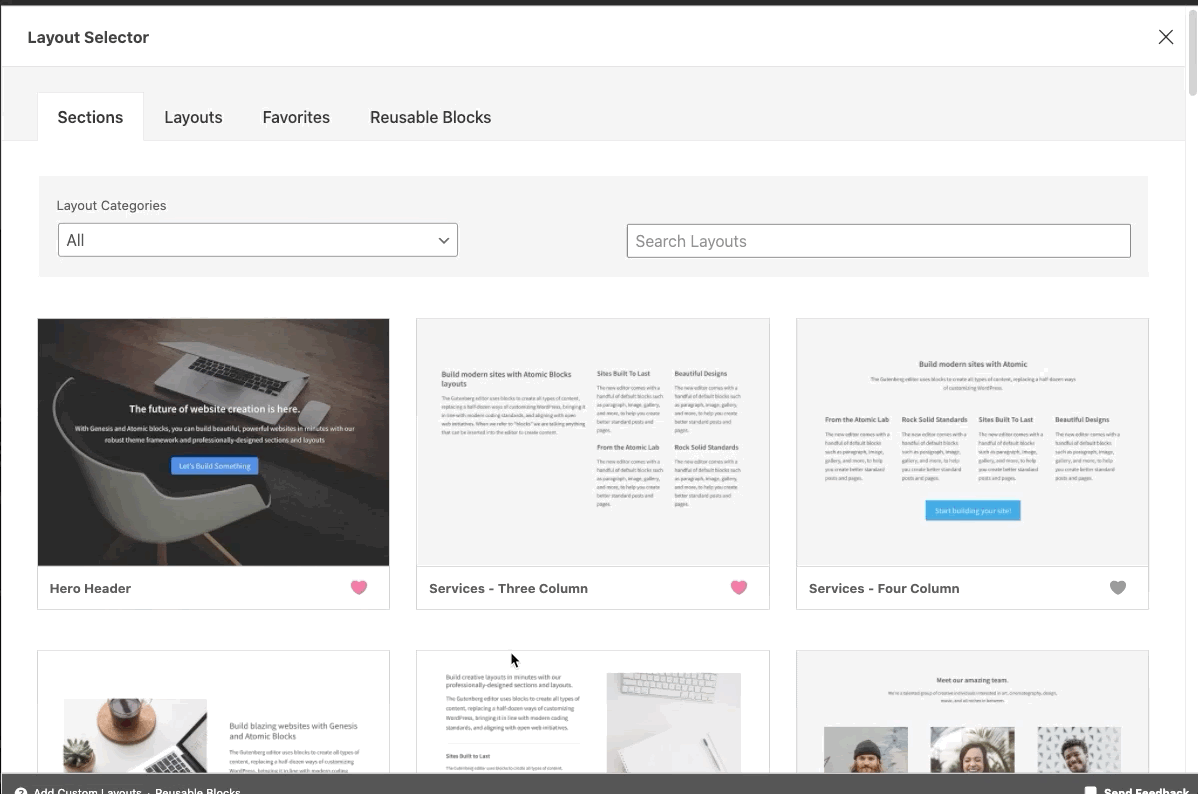StudioPress, which was acquired by WP Engine in 2018, is rebranding its popular Atomic Blocks plugin to Genesis Blocks. WP Engine also acquired Atomic Blocks in 2018, growing the plugin’s user base from 3,000 active installs to more than 60,000 over the past two years. The purpose of rebranding is to more tightly align the block collection with the Genesis brand.
“We decided to elevate the Genesis brand to be the parent brand for all of our block and theme products moving forward,” WP Engine VP of web strategy David Vogelpohl said. “While we could have changed the title of the Atomic Blocks plugin, we wanted the slug to represent the Genesis brand so we decided to create a new plugin to achieve that outcome.”
Unfortunately, in order to get the preferred slug for the plugin, WP Engine has to create a new plugin, instead of renaming the existing one. The company is creating a migration tool to move the plugin’s 60k users over to Genesis Blocks.
“Based on initial prototypes, the migration path will be automated for most users of the plugin,” Vogelpohl said. “We believe that migration technology will be available at the end of our next two-week sprint (starting next week), but we aren’t able to commit to a date until more work has been completed.”
The new Genesis Blocks plugin will now be explicitly developed in support of StudioPress themes and the Genesis Pro package. This doesn’t mean the blocks cannot be used with other themes. Rather, it’s more clear to users that the collection is designed to look best with WP Engine’s products.
Genesis Blocks contains the same 22 free blocks found in its predecessor but can be upgraded via a Genesis Pro subscription to add more blocks, full page layouts, and pre-built sections. The subscription also includes access to advanced block-level user permissions as well as support for the Genesis Framework and its commercial child themes.
Moving forward, all new features will be added to the new Genesis Blocks plugin, while support for Atomic Blocks gets scaled back to security releases and updates necessary for compatibility with WordPress.
“In time, it will be deprecated, but only after enough users have migrated over,” Vogelpohl said. “We don’t have a date for that yet and any future decisions will be based on the percentage of people who have migrated and the effects of that decision on the users who have not migrated at that time. It’s important for us to make decisions that are respectful of the users of any of our products and the sites they manage. We will clearly communicate future plans and dates for deprecation, but for now, users of Atomic Blocks will have plenty of time to migrate. We will continue to update Atomic Blocks for security releases and functionality relative to updates in WordPress until the plugin is officially wound down.”
When WP Engine acquired StudioPress and the Genesis Framework, the company said it planned to integrate it tightly into the the WP Engine Digital Experience Platform so it performs better there than anywhere else. It’s an interesting trend among WordPress hosting companies, similar to GoDaddy’s acquisition of CoBlocks and Themebeans, where the company is gradually refining its product acquisitions to provide its own flavor or “experience” of WordPress.
WP Engine also plans to rebrand the Block Lab plugin as Genesis Custom Blocks. The plugin will also have a similar migration path for its 8,000 active installs. WP Engine’s goal with the rebranding effort is to make page building with the block editor more streamlined, as well as an extension of its current product lines.
“Genesis Blocks will play a big role in how we deliver value under Full Site Editing in the future, so this is the first step in helping the Genesis community and anyone in WordPress build better sites faster with the block editor,” Vogelpohl said.

I wonder what will happen with the Atomic Blocks theme?